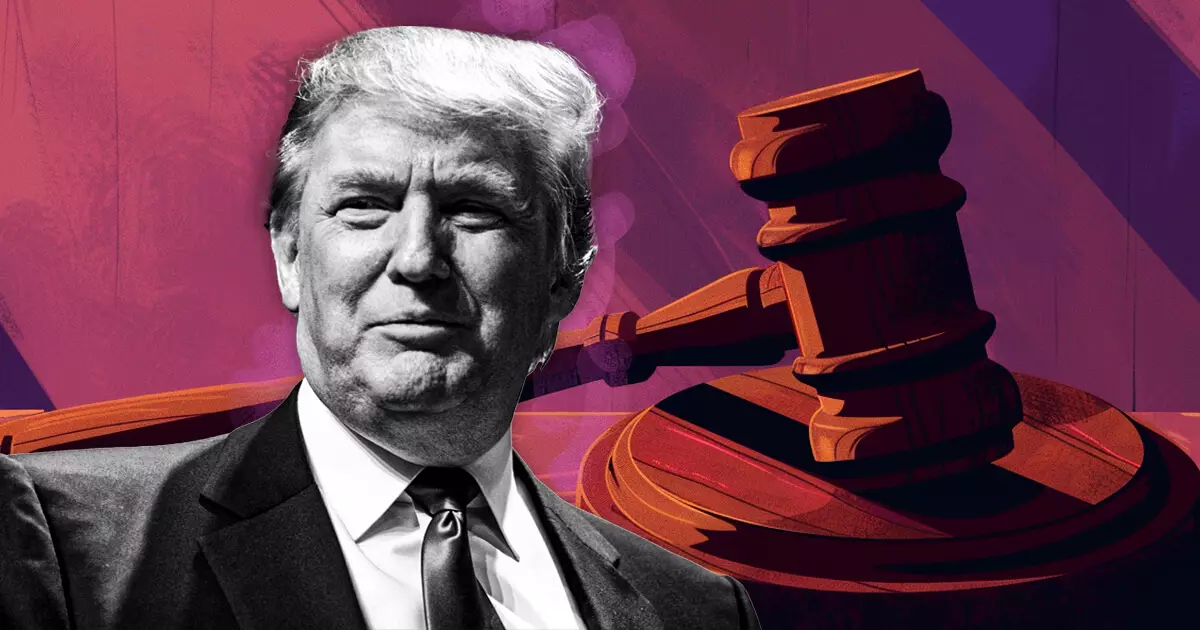Former President Donald Trump’s foray into the decentralized finance (DeFi) sector through World Liberty Financial has captured significant attention, particularly in the context of the evolving regulatory framework surrounding cryptocurrencies in the United States. While the project aims to innovate, it stands to face rigorous scrutiny and compliance demands from regulatory bodies like the Securities and Exchange Commission (SEC). SEC Commissioner Mark Uyeda has weighed in on the complexities involved, suggesting that World Liberty Financial is not exempt from these challenges.
Commissioner Uyeda has emphasized that the SEC operates primarily as a disclosure regulator, which means its focus lies on ensuring that companies provide thorough and transparent information to investors, rather than evaluating the inherent merits of specific projects. This statement underlines a crucial point; World Liberty Financial must adhere to the same disclosure standards as its peers in the crypto industry, regardless of its high-profile connection to Trump. Uyeda’s remarks signal the expectation that the venture will not receive any preferential treatment and will be held to the same legal and regulatory benchmarks as other crypto enterprises.
The implications of this statement are noteworthy. While Trump has promoted World Liberty Financial as a means to position the U.S. as a dominant force in global cryptocurrency initiatives, the reality is that success will depend heavily on operational compliance and navigating a convoluted regulatory landscape. This reality raises questions about the project’s viability in a sector already facing uncertainty.
Adding another layer of complexity to the narrative is the political climate surrounding the launch of World Liberty Financial. The deep partisan divide in Congress has led to speculation that Democratic lawmakers may intensify their efforts to regulate or scrutinize the project due to its association with Trump. This political backdrop could mean that the project’s journey is fraught with additional complications, with regulatory norms potentially influenced by political motivations rather than purely technical or market-based considerations.
Uyeda’s acknowledgment of this potential backlash illustrates the precarious balance that exists between innovation and regulation in today’s climate. Understanding these dynamics will be key for Trump and his team as they strategize on how to position World Liberty Financial in an environment that already seems inhospitable towards new crypto initiatives.
Investor sentiment surrounding World Liberty Financial appears to be tinged with skepticism. Given the historical volatility of the cryptocurrency market coupled with the lack of regulatory clarity, there are legitimate concerns regarding the project’s ability to attract investments and achieve long-term stability. Uyeda’s recommendation for Trump’s legal team—to secure robust legal representation—serves to highlight the arduousness of the regulatory journey that lies ahead.
Despite Trump’s confident assertions regarding the project’s potential to establish U.S. leadership in the global crypto space, the real-world challenges of compliance and transparency loom large. Investors are likely to reconsider their engagement with World Liberty Financial if regulatory frameworks remain ambiguous and the potential for legal hurdles becomes a significant risk factor.
The SEC’s current modus operandi has been a point of contention among industry advocates, many of whom argue that the lack of clear guidelines stifles innovation. The sentiments expressed by fellow SEC Commissioner Hester Peirce resonate with this viewpoint, as she described the environment as “toxic.” Such criticism suggests a growing consensus that for the U.S. to maintain its status as a leader in financial technology, clearer regulatory pathways are imperative.
As lawmakers and industry stakeholders advocate for more straightforward regulations, the push for collaborative frameworks underscores the need for a more conducive environment for innovation. If this regulatory malaise continues, many fear that entrepreneurs may seek greener pastures abroad, potentially undermining U.S. competitiveness in the burgeoning crypto sector.
As World Liberty Financial embarks on its ambitious journey, it faces a multitude of challenges that stretch beyond mere technological implementation. Navigating the complex regulatory landscape, responding to investor concerns, and addressing potential political ramifications are all critical components that will shape the project’s future. Ultimately, the combination of Trump’s influence and regulatory compliance will determine not only the fate of World Liberty Financial, but also the broader trajectory of crypto innovation in the United States. As stakeholders await clearer guidelines, the path forward remains uncertain, underscoring the intricate dance between ambition and regulation in the cryptocurrency universe.



Leave a Reply